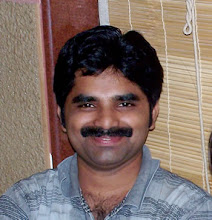The worst enemy of today’s journalism is neither governments nor an anti-governmental scenario. It is the journalists themselves, the way they operate.
I can’t remember the last time we had a real strong breaking news, whether it is politics, business, crime, science or sports.
Just a sample, latest from sports: How many of my creed knew that India still held a chance to win a bronze medal in wrestling, after Sushil Kumar got beaten in the first round? The media cried: Disappointing day for India in wrestling, Sushil defeated.
Then when he actually won a bronze medal through this system called repechage, I watched in amazement, how television news welcomed it. They did never show even a tinge of embarrassment for having ignored the medal possibility, and were gleefully explaining the technicalities of repechage instead.
What more can we expect from a machinery which calls every news an exclusive or breaking news? And what more can we expect from this world of journalism, owned, ruled and abused by corporates?
Speaking about Olympics, I felt the Indian media never did really bother to look at the potential medal hopes ahead of the Olympics and obviously, Abhinav Bindra was a surprise.
And look at the coverage received by the sleepy Haryana village called Bhiwani. Did anyone know there existed such a village? Don’t get me wrong here. Realization dawned overnight: this hamlet was called the Mecca of Indian boxing! Now we can have all kinds of documentaries shot around this village!
Instead, in those pre-Olympics days, the media went the clichéd way of celebrating the kinds of Sania Mirza and Anju Bobby George, who could not even give a match to their opponents (literally), leave alone the medal possibility.
So, our media is in a helpless position. They can’t unearth conspiracies that threaten the national security, they can’t foresee gigantic deals in Indian business, they can’t predict a politician’s next move.
They just talk about things that happened and then do some follow up to earn that daily bread and when the next issue happens, conveniently forgets the prior issue.
What happened to the Arushi murder case? Nobody seems interested now. The issues that followed swallowed it.
I think the only way to break this monotony called commoditized journalism is to do path-breaking stories – once in a while at least.
And shamefully I accept, I am no different. To a deadly extent, it is all about that thing called convenient, armchair, wire n wireless, googled journalism.
I am not talking about certain enthusiastic reporters who actually take the trouble of visiting the 'site' and cajole people to enact in front of the camera.
Wednesday, 27 August 2008
Some evil thoughts on today's journalism
Labels:
Arushi Talwar,
corporate,
journalism,
media,
news,
olympics,
press,
television
Subscribe to:
Post Comments (Atom)




1 comment:
"wire n wireless, armchair journalism" of today. I couldn't agree better. I like the way you have written it.
~Sanjay
Post a Comment